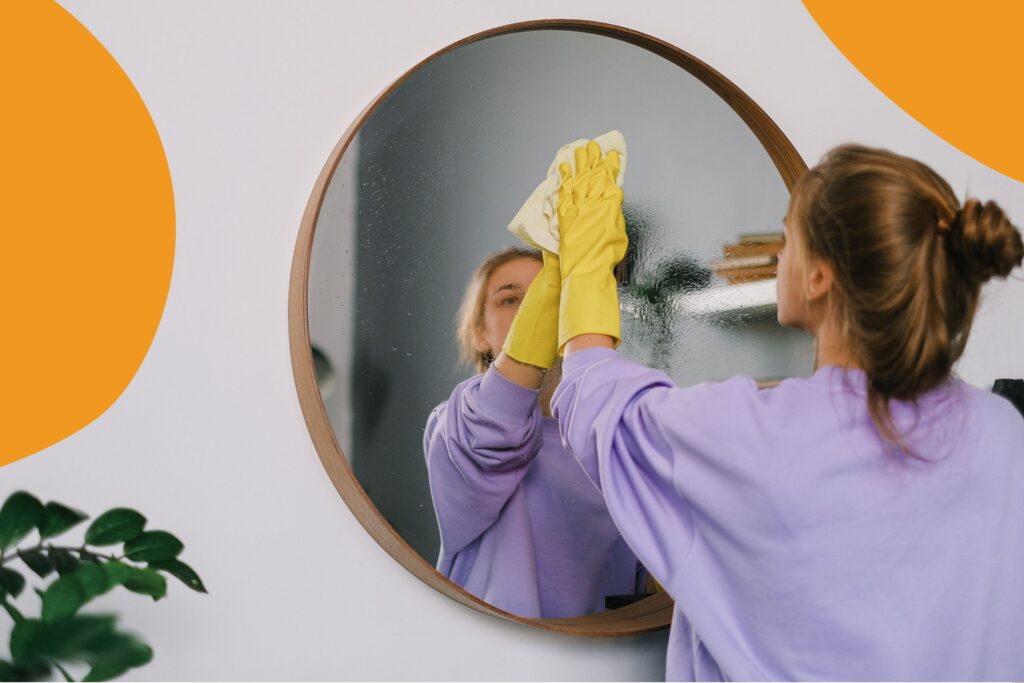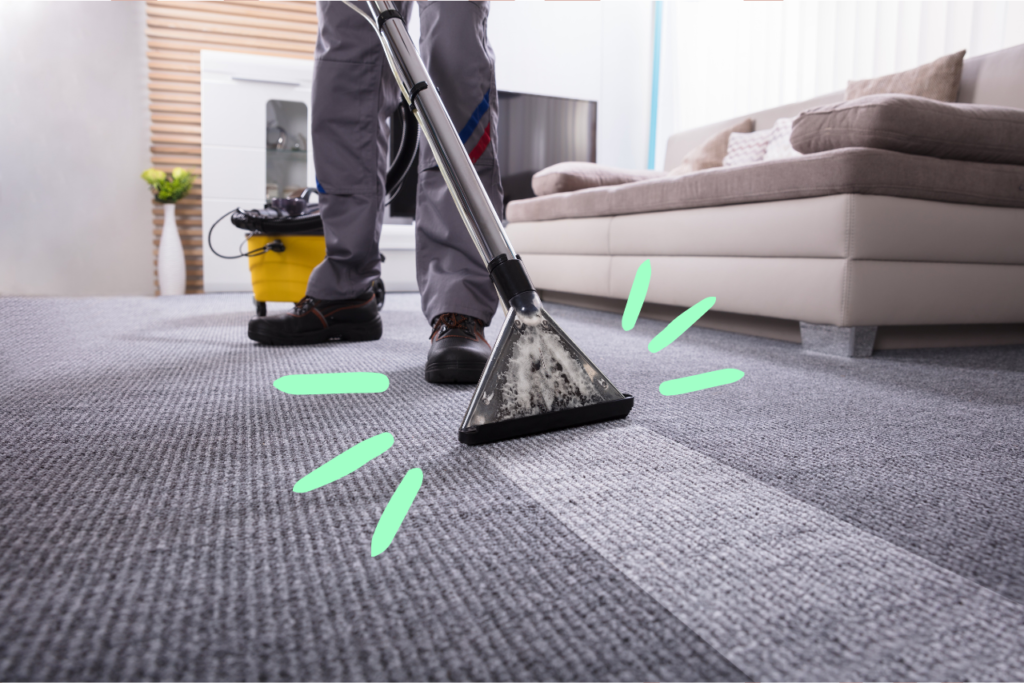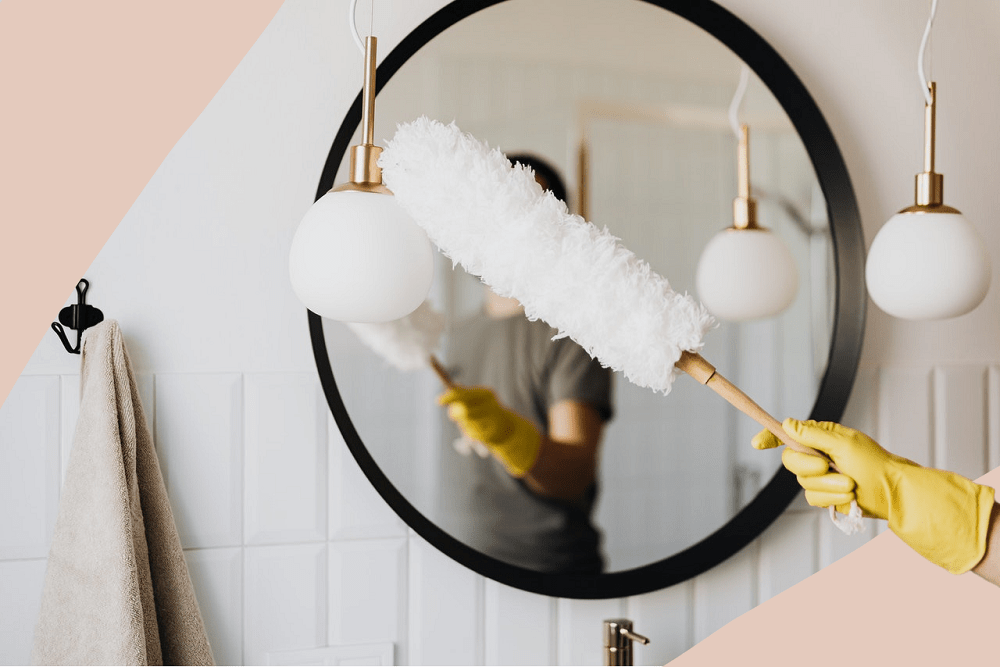Moving out is never easy, particularly when it comes to cleaning the property you’ve made memories in. When ending a tenancy in the UK, leaving the property sparkling clean is not just courteous – it’s usually a ‘requirement’ to help you reclaim your full deposit.
Not keen on hiring a professional cleaning company? No problem. Here are 10 essential steps to tackle the end-of-tenancy cleaning yourself, ensuring you leave your landlord happy and your deposit intact.
Step 1: Organise Your Cleaning Tasks
Begin by organising your cleaning tasks, methodically, deliberately and practically. Develop a detailed checklist of all areas that need cleaning. You will, of course, need to customise the list according to your property but usually, it includes bedrooms, bathrooms, kitchen, living room, hallways, and any outdoor areas.

Step 2: Invest In The Necessary Cleaning Appliances & Products
Invest in sturdy, quality cleaning appliances, such as a hoover, mop and squirt bottles. Multi-purpose scrub brushes and a sturdy bucket will also come in handy. Good quality appliances not only make the cleaning process quicker and easier, but they also provide a better finish.
Before splashing out, though, it’s worth weighing up the costs; end of tenancy cleaning in London might run you £200-400 depending on property size, so if you’re buying equipment from scratch, the savings from DIY may be slimmer than you think.
Read: 10 professional home cleaning hacks
Step 3: Use Appropriate Cleaning Solutions
Avoid the typical one-size-fits-all approach when it comes to cleaning solutions. Glass surfaces, wooden floors, and kitchen counters all sparkle best when cleaned with substance-appropriate solutions – steer clear from using abrasive cleaners on delicate surfaces.
Step 4: Freshen Up Walls & Doors
Although walls and doors are not likely to be muddied, they often bear scuff marks or smudges. Cleaning these visually noticeable areas can greatly improve the overall appearance of the rooms. A quick wipe down with soapy water usually does the trick.
Step 5: Deep-Clean Carpets
Carpets might be the most challenging aspects of end-of-tenancy cleaning. Carpets often accumulate dust and debris over the years and may not revive with a simple vacuuming. If your property has carpets, hire or purchase a carpet cleaner to deep-clean and reinvigorate them.

Step 6: Pay Attention To Kitchen Appliances
Kitchen appliances, like your oven and refrigerator, will likely need a thorough clean. Take your time to remove grime, burned food particles, accumulated dust and, of course, cooking smells. Mainly for ovens, specialised cleaning solutions may be required—ensure you use these cautiously to not damage the appliance.
Step 7: Deep Clean Your Bathroom(s)
Bathrooms would greatly benefit from a deep, angular clean. Address limescale on taps and shower heads using a suitable descaler. Clean the toilet bowl, floors, and wipe mirrors and windows spotlessly.
Step 8: Don’t Neglect The Exterior
If your property includes an outside space, don’t overlook these areas. Sweeping the patio, tidying up the lawn and trimming overgrown plants can hasten the retrieval of your deposit.
Step 9: Validate The Cleaning Process
Next, don’t forget to validate your hard work. Return to your initial cleaning checklist and cross check each item. If possible, ask an impartial friend or family member to review the rooms. This can ensure that the cleaning task is completed thoroughly, (hopefully) securing the full return of your deposit.
Step 10: Document Everything
Before you hand back the keys, take dated photographs and videos of every room, including close-ups of appliances, fixtures, and any areas that might later be disputed. This visual evidence can prove invaluable should your landlord attempt to make unfair deductions from your deposit.
Store these images securely, perhaps in a cloud folder, and consider emailing them to yourself so you have a timestamped record. If there were any pre-existing issues when you moved in, cross-reference your new photos with your original inventory to demonstrate nothing has worsened under your tenancy.

Is Professional End-of-Tenancy Cleaning Mandatory by Law In The UK?
One question that often arises among occupants preparing to move out is whether professional end-of-tenancy cleaning is legally required. In the UK, the simple answer to this is “No”. However, like most legal matters, there’s more to the story.
According to the Tenant Fees Act 2019, landlords or letting agencies are not permitted to require tenants to pay for a professional cleaning service when moving out. They also cannot automatically deduct money from the tenant’s deposit for cleaning charges.
The landlord has the right, however, to stipulate that a property be returned in the same condition (excluding normal wear and tear) that it was initially rented out in. If the tenant did not do this or if the rental agreement included such a clause and the property was initially rented out in a professionally cleaned state, it is implied that the tenant is required to return it in a similarly professionally cleaned state.
That being said, while landlords can request this, they cannot enforce it or hold back deposit money without proof of necessity. If issues do arise, deposit disputes can be submitted free of charge to a Tenancy Deposit Scheme (TDS) – one of the three government-approved Deposit Protection Services – for adjudication. The TDS adjudicates with complete impartiality and makes a binding decision based on the evidence presented.

In general, therefore, while professional cleaning may not be mandatory by law, it might be strongly advised in the tenancy agreement to ensure a hassle-free conclusion to your tenancy, especially in cases where the property was initially rented out in a professionally cleaned state.
You might want to consider getting quotes from a cleaning service before deciding whether to do it yourself or hire professional help. Regardless of whether you do hire a professional cleaning service or choose to clean the property yourself, just remember that a spotlessly clean property when you vacate can prevent any cleaning cost deductions from your deposit and make your moving process much smoother. The choice, ultimately, lies in your rubber-gloved hands.
The Bottom Line
While end-of-tenancy cleaning can feel like a mammoth task, a structured and systematic approach can help make it manageable. In doing so, you’ll not only (fingers crossed!) save a fair bit of money,, but also build novel cleaning skills to serve you in your future home. Good luck, and may your end-of-tenancy cleaning be as smooth as possible!





